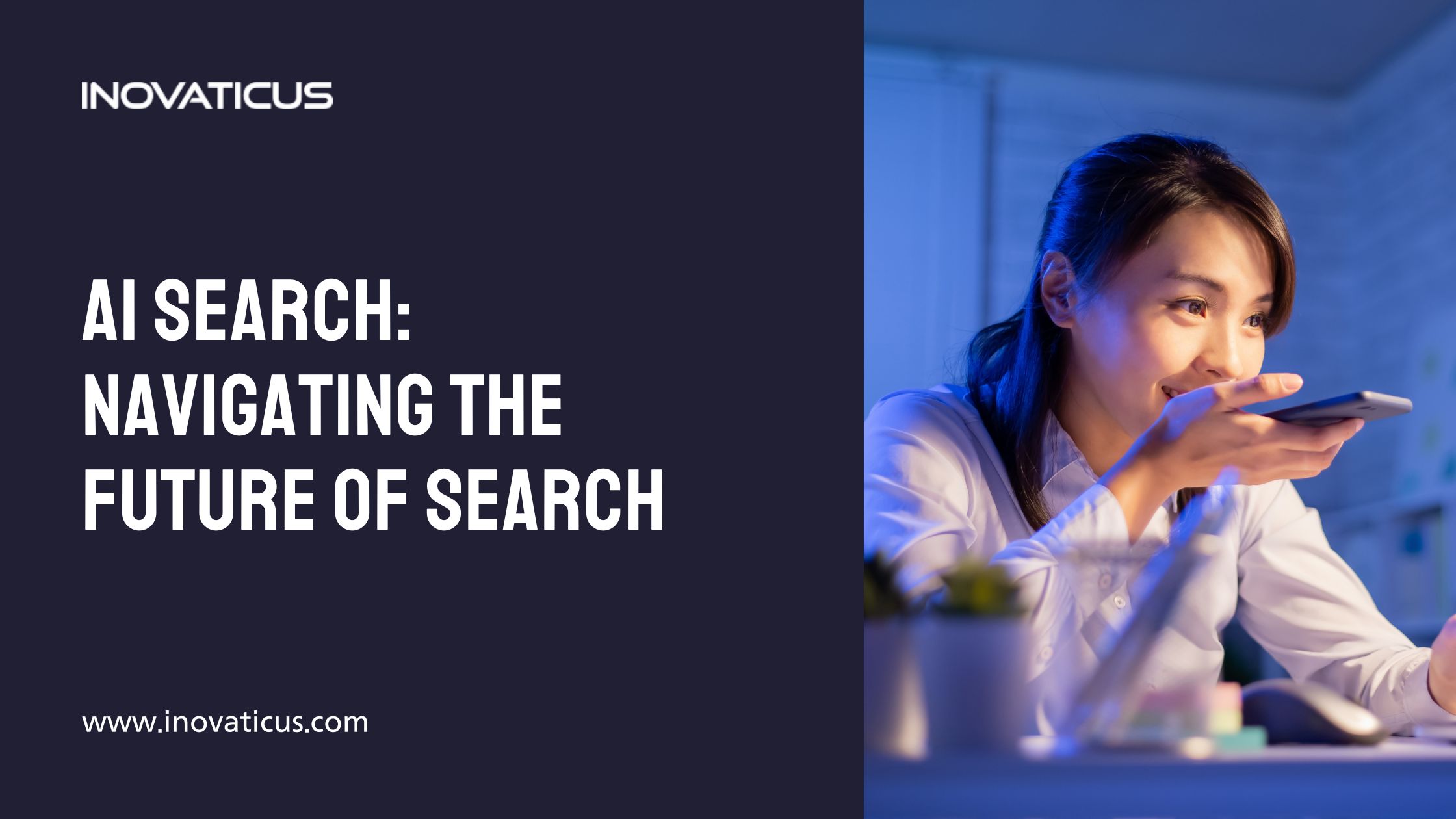With the advent of Artificial Intelligence, marketing, especially SEO has changed forever. The Search Engines have also started using AI technology and they are becoming more ‘intelligent’.
If you, like billions of other marketers, have been trying to decode this change, then this is the article for you. We will get a basic understanding of AI Search in this article. We will also understand how you will need to upgrade your existing SEO strategy to an AI SEO Strategy.
Table of Contents
The evolution of AI
AI as a technology is now new. It was in development for many years and was being used by large enterprises in different ways.
The big breakthrough came in November 2022, when OpenAI introduced ChatGPT. This brought AI within the reach of the masses and made a mind-boggling impact on the world. Since then billions of people from around the world have been trying to understand and use AI.
Understanding the concept of AI search
Search Engines like Google and Bing are now using AI to gather, process, and generate results.
Google’s AI is called Bard and it has named its AI search engine “Google Search Generative Experience (SGE)“. Bing has integrated a version of ChatGPT into its search engine. Both of them provide search results as well as answers from AI to help users find information faster. By doing this they have transformed themselves into AI search engines.
The AI search engines use machine learning to analyze and understand what users want. Soon they become smarter and much better at delivering relevant information to users. They can even give personalized responses which make these searches much more useful. They can also process very complex queries and understand natural language like humans can. This makes search a lot more powerful and enhances the overall customer satisfaction.
Impact of AI on SEO
Artificial intelligence has had a significant impact on the way we do SEO. It has simplified the content creation workflow too.
Till now a lot of this work was manual. The process of topic identification, keyword research, and finding topic clusters could take days, or even weeks if the topic was vast. You had to do these tasks and then create content that would appeal to the search engines.
But now with the advent of AI, the tools have become smarter. You can use many AI-powered tools to do tasks within a few minutes. You can even automate many of these tasks.
If you want to be in the game, then you will have to use AI for SEO. Otherwise, your competitors will use it and move ahead making it impossible for you to catch up later.
Here are some of the areas where AI is making a major impact in the way we do search engine optimization.
Keyword research
A classic problem with content creation is that what the writers think is important may not be what the users want to read. This results in poor search performance and lower click-through rates. The AI tools can help bridge this gap by identifying the topics that attract the attention of users.
AI-powered Keyword Research tools are very good at finding search trends and keywords you might have missed. They can also analyze the competition in the SERPS to predict how easy or difficult it will be to rank for each of the keywords you have chosen. Thus, they can save you from wasting time chasing keywords that are too difficult to rank for. They also make the keyword research process a lot faster.
Content generation and optimization
AI-powered tools have made the entire process of creating content easier and faster. You can also optimize the content with these tools to make them more SEO-friendly. They can be used to create and optimize content faster, increasing the likelihood that they will be loved by research engines as well as users.
Some tools like ChatGPT, Jasper.ai, and Copy.ai have become quite popular for creating both long-form and short-form content. Not only this, tools like Surfer SEO and Rankmath can suggest improvements in real-time while you are writing the content. These tools can save you from the trouble of having to rewrite the content later to make it more search-engine friendly.
Predictive SEO
It is now possible for AI to look at past data like search trends and consumer behavior to predict future trends. This is called predictive SEO.
As an SEO expert, you can now use AI-powered predictive SEO tools to create and optimize content that will rank and convert well. You will also be able to adapt your SEO strategies to withstand the changes in the Search Algorithms that may come in the future.
Voice search optimization
AI-powered search algorithms understand natural language and context better. Hence, they are more responsive to voice commands as well. They can process voice commands, understand their context, and give accurate and relevant answers. This ability has given a boost to the popularity of Voice Search and Voice Assistants.
Writing content that sounds more natural will give your users a better experience when they use voice search. This will also help you stay ahead in the age of AI.
Visual search optimization
Visual search relies on images, and visual search optimization takes the possibilities of SEO beyond text. The latest artificial technologies are good at analyzing and comprehending images. They can identify faces, objects, landmarks, and products within the images. Hence the users can now explore the web visually and find information with the help of image search.
This has opened a sea of possibilities for e-commerce companies to showcase their products in front of their users. They can now enable the users to search for products using images and recommend products that look similar. This can increase user engagement and conversion rates and also open up interesting possibilities in the future.
Enhancement of user experience
AI search engines analyze the real-time browsing data of users on each website. This gives them a better understanding of how users are interacting with the sites.
You can access this data through Tools like Google Search Console and Google Analytics 4. This will enable you to understand how well your website is optimized and how you can make it better. Many of them also provide AI-generated recommendations to help you improve your website.
The Future of AI Search Engine Optimization
This AI revolution has just started and the future is bright. As these tools continue to undergo machine learning, they will become even better and more robust in the future. SEO has changed and it will never be like it used to be in the past.
If you want to be in the game and be better than your competitors then start implementing AI SEO for your website. Use the AI-powered tools to improve your content production and optimization workflow. Though currently AI has some limitations, it can give you very encouraging results if you use it properly and responsibly. We do not recommend that you use AI blindly at least in its current form. Keep your eyes open and apply your own logic to ensure that you get the best results out of AI SEO.
Frequently Asked Questions
What is AI search and how does it differ from traditional search algorithms?
AI search, unlike traditional search algorithms, utilizes artificial intelligence and machine learning to understand user intent and deliver more relevant results. It goes beyond relying solely on keywords or exact matches by incorporating natural language processing and contextual understanding. AI search learns from user behavior, allowing it to continuously improve its results over time.
How has AI impacted the accuracy of search results?
AI’s impact on search accuracy has been significant. By leveraging machine learning and natural language processing, AI can better understand user intent. With access to vast amounts of data, AI algorithms provide personalized and relevant search results. However, concerns remain regarding biases and transparency in AI-powered search algorithms.
What are some potential drawbacks or concerns with AI-powered search?
Potential concerns with AI-powered search include biased results due to algorithmic biases, privacy and data security issues, over-reliance on AI leading to a lack of human oversight and accountability, and the potential impact of increased automation on job loss and the economy.
How can businesses optimize their website content for AI-powered search engines?
To optimize their website content for AI-powered search engines, businesses should focus on creating high-quality and relevant content that satisfies user intent. They can also use structured data markup to help search engines understand the context of their content. Optimizing for natural language and long-tail keywords is crucial, as AI-powered search engines prioritize conversational queries. Additionally, monitoring website analytics can help businesses refine and improve their content strategy for AI search.
Are there any ethical concerns related to AI-powered search engines?
Ethical concerns are indeed associated with AI-powered search engines. One concern is the potential bias in search results, while another relates to the collection and use of personal data. Developers of AI-powered search engines must address these concerns and promote transparency.
Conclusion
In conclusion, AI has completely transformed the search landscape, revolutionizing the way we approach SEO. With AI-powered search algorithms, businesses can now gather valuable insights, predict user behavior, and optimize their content to deliver a more personalized and relevant user experience. NLP and machine learning have also played a crucial role in understanding user intent and improving search results. Voice and visual search optimization are becoming increasingly important as more users rely on these technologies.
Looking ahead, it is clear that AI will continue to shape the future of SEO. Businesses must adapt and optimize their website content to align with AI-powered search engines. By incorporating AI into their SEO strategies, businesses can stay ahead of the competition and provide a seamless and intuitive search experience for users.
If you found this blog helpful, please share it on social media to spread the word about the impact of AI on search.


